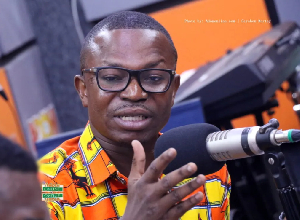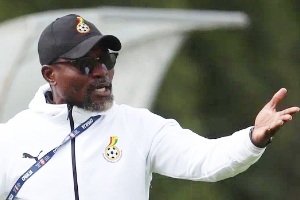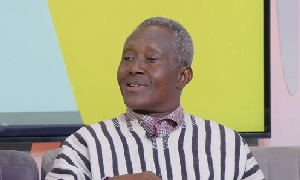Last Saturday, in far away Houston, Texas, Nana Akufo-Addo was uncompromising in describing President JEA Mills’ four-year term as a period of wasted opportunities. He called on Ghanaians to replace the government of “lies, propaganda, hypocrisy, incompetence, corruption and economic hardships.”
Nana Addo told the town hall meeting of Ghanaians the frustrating truth, “Ghana is, indeed, blessed by God. What is required is a competent leader to do something for people and country with what Heaven has bestowed.”
His next point, I believe depicts the greatest cryptogram or perplexity about the Mills-Mahama government, the only government that has been blessed with oil:
“The current government has had much more resources than any other government in the past. Higher taxes, higher duties, record earnings from gold and cocoa, billions of dollars of loans, leading to a doubling of our total debt portfolio in just 3 years.”
Nana proceeds to ask the obvious question: “The question on the lips of Ghanaians is this: na sika no wo he ne? Where is the money? What have they done with it? Who is benefiting from it? Who has it been giving to? Who is enjoying? Where did all the money go?”
In his view, the biggest crisis facing the country now is one of “leadership paralyses.” With the Economist Intelligence Unit calculating that Mills may get a second chance because Ghanaians have historically, since 1992, given every President a second term, his challenger, Nana Addo has different ideas:
“This era of leadership paralysis must not exist a minute longer than the four years the people and Constitution granted the NDC, in all innocence, in 2008. We need change now to move Ghana forward. We cannot waste four more years under this government of lies, propaganda, hypocrisy, incompetence, corruption and economic hardships.”
But, Nana’s next line of attack, I believe, should stand out as, so far, the sound-bite of 2012: “The people want jobs; not juju politics that create 1.6 million phantom jobs and turn sheep into cows, sod cuttings into Action Year and judgment debts into gargantuan crimes.”
He did not leave it there, “The NDC is not working. Mills is not working. Mills and Mahama have not worked and will not work. Let us all say together to the current custodians of power that the days of empty rhetoric are over. No more lip action. Enough is enough!”
EIU TIPS MILLS The Daily Graphic, for the first time ever, felt it necessary to use an EIU report as a front page story. The Graphic report, which said EIU tips Mills as the slight favourite, was planted to offer a fig of hope to disillusioned NDC supporters -- nothing more, nothing less.
The EIU report, ‘Ghana Economic and Political Outlook for 2012-16 Election Watch’, makes two or so points in favour of NDC re-election: “the power of incumbency will give some advantage to the NDC – especially in terms of spending the early oil windfall... The NDC looks set to suffer from its internal rivalries and corruption allegations, but it should benefit from the favourable economic picture of high growth and relatively low inflation.”
The EIU does analysis but does not undertake any opinion poll to support its election predictions. So, for it to conclude that the NDC “should benefit from the favourable economic picture of high growth and relatively low inflation” is to ignore the facts on the ground which every opinion poll points to: unemployment, followed by high cost of living.
Any analyst who ignores, what Akufo-Addo has identified as, the current phenomenon of “jobless growth”, does very little justice to the facts on the ground. Delivering the keynote address at the 12th Windhoek Dialogue Parliamentary conference last November, the NPP flagbearer said, “the structure of our economies is just not built for jobs. An economy driven by exports in raw materials just cannot create the necessary large pool of decent jobs with decent pay. If it had, our people would have enjoyed prosperity a long time ago.”
Of course, Mills is allowed to seek fools’ solace in the EIU report, but the report offered nothing new to support its enduring faith in its last quarter of 2011 prediction that the 2012 contest will be close with Mills having a slight edge.
In its May 2011 report, ‘Ghana at a glance 2011-12’, the EIU observed, “The President, John Atta Mills, and his ruling National Democratic Congress (NDC) will find it difficult to balance their attention between widening intra-party divisions and moving the development programme forward... As a result the opposition has a good chance of winning power at elections due in 2012.”
The EIU, taken in by Mills’ decisive but peripheral (see Kwabena Agyei’s letter about growing problems in NDC) victory in the September presidential primary, went back to make the cinch and facile point that incumbency favours Mills slightly because of economic growth and the fact that Ghanaian voters had given every president a second term.
Indeed, the only thing new in the EIU February report is the impact of the Woyome/Waterville judgment debt payments on the political landscape. The EIU report says of the Woyome case, “President Mills’ reputation has been damaged. It could be a lose-lose situation for the president.”
The EIU has so far missed the game-changing impact of this Woyome/Waterville issue. It has exposed a potentially bigger rot. That rot is best described by the slogan: ‘Na Sika No Wo He Ne?’ What has Mills done with all the financial resources that have been available to him?
Presidents Kufuor and Rawlings have things to show for the tenure. The Danquah Institute has, for instance, provided, on its website (www.danquahinstitute.org) the projects that the nation was able to get done with America’s $547 million. Can the Mills-Mahama government present a similar list of its projects with the tens of billions of dollars that it has had access to in its four years?
This is where the tag of corruption becomes like a sticking candiru (vampire fish) sucking the blood from the NDC’s electoral fortunes. Corruption or the perception of corruption, the nemesis of incumbency, has come back with a vengeance against Mills.
Let me return to Akufo-Addo’s Saturday speech to raise a very significant policy initiative that nobody in Ghana, except Anas Aremeyaw Anas, appears to have taken any serious notice of: Akufo-Addo promises to institutionalise the Anas Principle to fight corruption.
In his own words: “My government would institutionalise what I call the Anas principle, to create a new culture of fear for corrupt practices. We must infest the disciples of corruption with paranoia in that you may never know that the person you are giving the bribe to or receiving it from may be an undercover agent.”
Nana Addo explains, “I intend to establish a special anti-corruption squad, made up of some of our best young talents, well-trained, well-paid, well-disciplined, with the licence to root out corruption from every nook and cranny of our public life. I know this may be controversial but I am resolute in my conviction to remove the hold that corruption has on our institutions and our development. Serious problems call for serious solutions. I will introduce stiffer punishments for corruption to make the theft of state funds more expensive for the criminal than the stealing of a goat.”
In the UK in 1993, Scotland Yard set up a secret unit called the Ghost Squad, an anti-corruption squad to deal decisively with the problem of corruption in the police. Their motto: ‘Integrity is Non-Negotiable’.
Some British police officers were engaging in all sorts of malpractice. Some were skimming off drugs and money during raids; selling information and; others were warning leading criminals of operations against them, or selling them tips on the weak points in prosecution cases.
I see Nana Addo’s proposal as similar to this supergrass system but aimed generally at corruption in the public sector. The New York City’s Department of Investigation operates a similar anti-corruption system, which has served the city very well and has become the model for emulation elsewhere.
Such a secret anti-corruption operation shall be run by undercover operatives whose existence will be known by all but their identity known only to a few people.
I was watching ABC News on Tuesday, which featured the Air Marshalls, a special squad revived ten years after the 9-11 terrorist attacks. Well-trained, armed, undercover officers who mix with air passengers on US flights. Their boss said something that struck me: “People think we are everywhere because they don’t know who we are or how many of us are out there but they know we are.”
Investigating corruption is resource intensive and sometimes requires specialist skills and special people with special commitments, supported by a committed political leaership. Akufo-Addo has put a serious proposal on the table. Let us interrogate it.
The author is the Executive Director of the Danquah Institute. gabby@danquahinstitute.org
Opinions of Saturday, 11 February 2012
Columnist: Danquah Institute


















